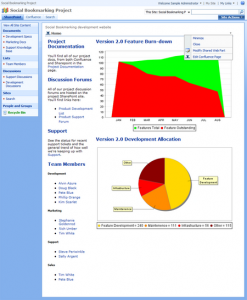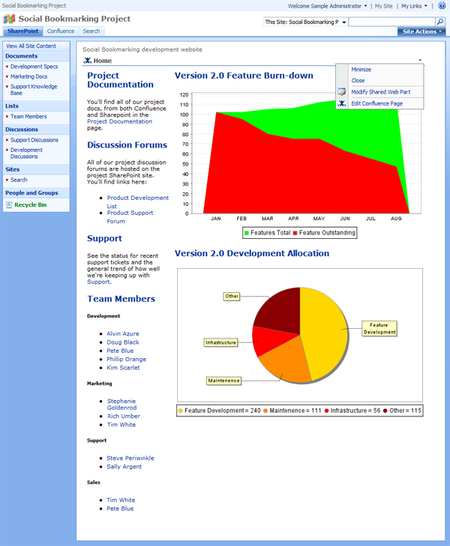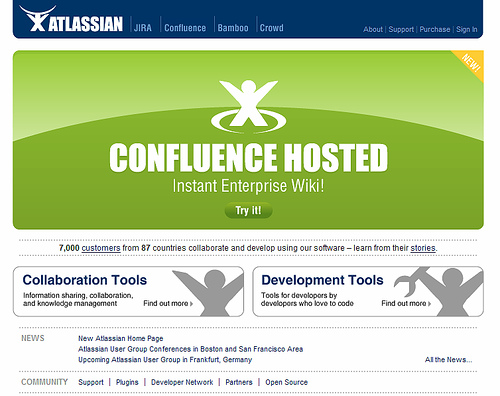The 80/20 rule is out (so last century), 90:9:1 is in: the rule of participation in public communities, social networks, wikis:
- 90% of users are lurkers (i.e., read or observe, but don’t contribute).
- 9% of users contribute from time to time, but other priorities dominate their time.
- 1% of users participate a lot and account for most contributions: it can seem as if they don’t have lives because they often post just minutes after whatever event they’re commenting on occurs.
90:9:1 is a pretty good fit for most public wikis, starting with Wikipedia. Ben Gardner observed very different numbers: 50:25:x (he does not specify “x”). The interesting number here is 25, or it’s relationship to 50, meaning:
When the same question was asked about our corporate wiki ~50% of those present had used it but about ~50% of those had edited it.
Active participation in a corporate environment is much higher than in the public domain – this is not really a surprise, since the corporate wiki is used by people of real identities and reputations, and most importantly, shared objectives. This is also why Prof. Andrew McAfee hasn’t seen vandalism – a plague of public wikis – in the corporate world at all.
I suspect that 25% can go a lot higher, depending on the purpose of the wiki. When after the initial “grassroots movement” management fully embraces the wiki not as an optional, after-the-fact knowledge-sharing tool, but the primary facility to conduct work, it becomes the fabric of everyday business, where people create, collaborate, and in the process capture information. When the wiki is the primary work / collaboration platform, participation is no longer optional. Not when the answer to almost any question is “it’s on the wiki.” ![]()
My earlier posts on this subject:
(hat tip: Stewart Mader)




 )
)



 Oh, well, if you want to find out more about Atlassian, you can attend their user
Oh, well, if you want to find out more about Atlassian, you can attend their user  ) but there is no support, no migration plan – game over, bad luck.
) but there is no support, no migration plan – game over, bad luck.  Of course JotSpot had the right to do this, these were not paying customers (yet), and a beta is a beta, after all. But a beta program is a mutual effort, and especially early on requires a lot of time and effort from the customers, so it’s clear that these customers may feel let down. While most competitive migration offers are hosted solutions, it’s this specific “betrayed” group that
Of course JotSpot had the right to do this, these were not paying customers (yet), and a beta is a beta, after all. But a beta program is a mutual effort, and especially early on requires a lot of time and effort from the customers, so it’s clear that these customers may feel let down. While most competitive migration offers are hosted solutions, it’s this specific “betrayed” group that 
Recent Comments